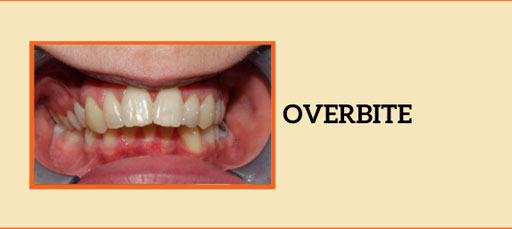
Overbite – Symptoms, Causes, Treatment
A smile is often our first form of expression, conveying joy, warmth, and confidence. However, dental issues can sometimes affect not just the appearance of our smiles but also our oral health. One such common concern is an overbite, which affects millions of people around the world. Let’s delve into what an overbite is, its symptoms, causes, and available treatments.
What is an Overbite?
An Overbite refers to the misalignment of the upper and lower jaws, where the upper front teeth excessively overlap the lower front teeth. While a slight overbite is normal, a significant overbite, often called a Deep Bite, can cause various problems.
Symptoms of an Overbite
- Visible protrusion of upper front teeth: This can lead to an uneven smile or discomfort with the appearance of the teeth.
- Difficulty biting or chewing: A severe overbite might make it challenging to bite into food properly or chew without discomfort.
- Speech problems: Pronunciation issues may arise due to the misalignment of the jaws and teeth.
- Jaw pain: Overbites can contribute to jaw pain or temporomandibular joint (TMJ) disorders.
Causes of Overbites
Several factors contribute to the development of an overbite, including:
- Genetics: Hereditary factors play a significant role. If either or both parents have an overbite, their children may inherit this trait.
- Childhood habits: Thumb sucking, extended pacifier use, or tongue thrusting can impact jaw development, leading to an overbite.
- Injury: Trauma to the face or jaw can sometimes cause misalignment.
Treatment Options
Various treatment options can address overbites based on their severity:
- Orthodontic treatments: Braces or clear aligners can gradually shift the teeth into proper alignment.
- Jaw surgery: In severe cases where the overbite is due to a misaligned jaw, surgery might be recommended to reposition the jaw.
- Retainers: These are often used after braces to maintain the corrected alignment of the teeth.
Seeking Professional Advice
If you suspect you or your child has an overbite, seeking advice from a qualified orthodontist or dentist is crucial. They will conduct a thorough examination and recommend the most suitable treatment plan tailored to your specific situation.
Conclusion
An overbite can impact both aesthetics and oral health, but it’s a condition that can be effectively managed and treated. Early detection and appropriate intervention often lead to successful outcomes, ensuring a healthier, more confident smile.
Leave a Reply
Leave a Reply
Explore More Similar Posts
Explore More Blogs


Leave a Reply